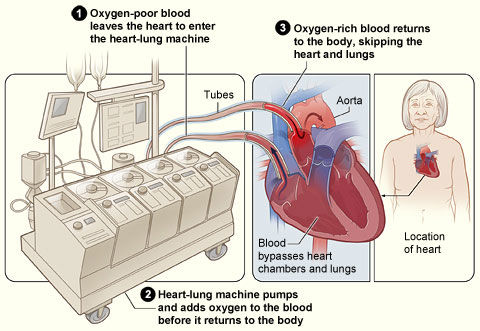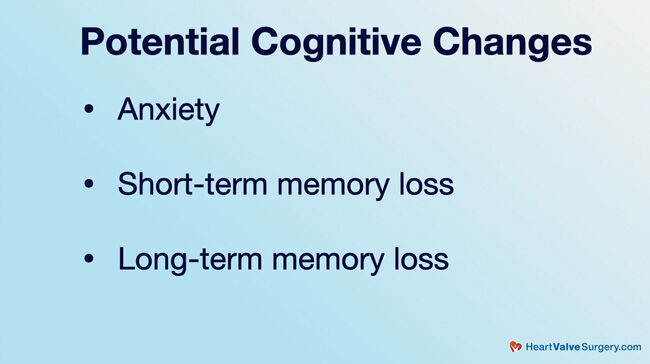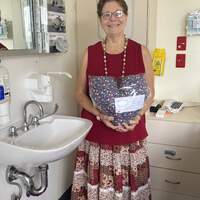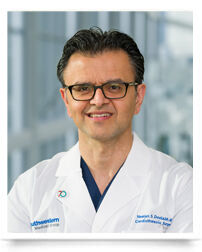Pumphead After Heart Surgery: What Should Patients Know?
Written By: Adam Pick, Patient Advocate, Author & Website Founder
Medical Expert: Junaid Khan, MD, Medical Director, Alta Bates Summit Medical Center
Page Last Updated: June 3, 2025
I just received a great question from Tom about pumphead after heart surgery. In his email to me, Tom asked me, “Hi Adam, What is the truth about Pumphead? I have read conflicting reports about whether or not the heart-lung machine is potentially responsible for post-operative cognitive issues including confusion, anxiety, and forgetfulness.”
To provide Tom an expert response to this important question, I contacted Dr. Junaid Khan, a leading cardiac surgeon at Sutter Health Alta Bates Summit Medical Center in Oakland, California. During his career, Dr. Khan has performed over 4,000 cardiac procedure with more than 2,000 operations involving heart valve repair and replacement operations.
Key Learnings About Pumphead
Here are the important insights about Pumphead we learned from Dr. Khan:
- The heart-lung machine is used during heart surgery to take blood out of the body, puts oxygen into the blood, and then replenishes the body with the oxygen-rich blood.
- According to Dr. Khan, some people think that the heart-lung machine can create micro-particles which may cause neurocognitive changes in patients.

- Research, studies and data about specific to Pumphead and neurocognitive changes after heart surgery has been conflicting for the past 40 years. Dr. Khan states, “The data on this topic is very conflicting. It has been conflicting for 30 to 40 years.”
- Common reported neurocognitive changes experienced by patients include short-term memory loss, long-term memory loss and anxiety.

- A an important reason why the data about the impact of the heart-lung machine is conflicting is that other studies concluded that patients who undergo surgery that does not utilize a heart-lung machine also experience similar neurocognitive changes. As Dr. Khan states, “The reason the data is conflicting is when we do off-pump surgery, meaning when we haven’t used a heart or lung machine, sometimes we can exhibit the same changes.”
- Dr. Khan also provided insights about a very interesting study in which healthy college students were placed in a confined, hospital-like setting without having any operating performed. The student exhibited similar neurocognitive changes similar to Pumphead. “One of the most interesting studies that was done a few years back is taking healthy college students and just putting them in a restrained, confined environment like it would be in the hospital,” states Dr. Khan. “They had no procedures done, but they themselves after a week had some neurocognitive changes.”
- Specific to Pumphead symptoms, Dr. Khan suggested that most neurocognitive issues resolve at a year. “The good news is that most of these things do get significantly better at a year,” states Dr. Khan.
- Dr. Khan suggests that if you are experiencing any symptoms, it is prudent to see a physician. Dr. Khan states, “The last thing I will tell you is that if you’re having any symptoms, I would not take them for granted and assume it’s Pumphead. You definitely want to be seen by a physician.”
Thanks Tom and Dr. Khan!
I hope this helped Tom (and perhaps you) learn more about Pumphead and the heart-lung machine.
Many thanks to Tom for submitting his question! A special thanks goes out to Dr. Junaid Khan and Sutter Health Alta Bates Medical Center for taking such great care of heart valve patients!
Related Articles:
- See Dr. Junaid Khan’s Interactive Surgeon Profile
- Explore the Alta Bates Summit Heart Valve Microsite
Keep on tickin!
Adam
P.S. For the deaf and hard of hearing members of our community, I have provided a written transcript of my interview with Dr. Khan below.
Video Transcript:
Adam: Hi, everybody. It’s Adam with heartvalvesurgery.com. Today we’re answering your questions all about the heart-lung machine and Pumphead. I am thrilled to be joined by Dr. Junaid Khan, who is a leading cardiac surgeon at Sutter Health Alta Bates Summit Medical Center in Oakland, California. During his extraordinary career, Dr. Khan has performed over 4,000 cardiac procedures, with more than 2,000 involving some form of heart valve repair or heart valve replacement. Dr. Khan, it is great to see you again. Thanks for being with us.
Dr. Junaid Khan: Adam, it’s absolutely my pleasure being with you.
Adam: Dr. Khan, you and I have known each other for a long time, many years. Several of the patients are going to recognize you from the great educational events that you’ve hosted there at Alta Bates Summit Health in Oakland, California. Thanks for all of the great care that you’re providing our patients.
Dr. Junaid Khan: Absolutely. Adam, I want to thank you and your team for heartvalvesurgery.com. I can’t tell you how many times my patients and their families tell me what a great resource it was for them not only before surgery but after surgery.
Adam: That is great to hear. In terms of creating some great content to help them, let’s get into it, because we’ve got a fantastic question for you, Dr. Khan, from Tom. He asks, “What is the truth about Pumphead? I have read conflicting reports about whether or not the heart-lung machine is potentially responsible for post-operative cognitive issues including confusion, anxiety, and forgetfulness.”
Dr. Junaid Khan: Tom, that’s a great question. I think you already have your answer in your question. The data on this topic is very conflicting. It has been conflicting for 30 to 40 years. I think the first thing to do is really talk about what a heart-lung machine does, how it’s utilized. When we do heart surgery, particularly valve surgery, we have to open the heart. In order to do that, we actually have to utilize the heart-lung machine. It takes all the blood out of the body, puts oxygen in it, and puts it back into the body. Some people think that that creates microparticles, which can cause some neurocognitive changes.
What does that mean? First and foremost, what we talk about is when someone has a stroke. That’s a big deal. That’s a fixed defect. That’s not what we’re talking about. What neurocognitive changes mean is that when we formally test someone before and after heart surgery, we notice some changes. It could be anxiety. It could be short-term memory loss or long-term memory loss.
However, what I will tell you, the reason the data is conflicting is when we do off-pump surgery, meaning when we haven’t used a heart or lung machine, sometimes we can exhibit the same changes. The theory is that this more related to a patient being sick, being in the hospital, and in general, the cardiovascular disease that they have.
One of the most interesting studies that was done a few years back is taking healthy college students and just putting them in a restrained, confined environment like it would be in the hospital. They had no procedures done, but they themselves after a week had some neurocognitive changes. The good news is that most of these things do get significantly better at a year.
The last thing I will tell you is that if you’re having any symptoms, I would not take them for granted and assume it’s Pumphead. You definitely want to be seen by a physician.
Adam: Tom, I hope that helped you. I know it helped me. Dr. Khan, I can’t thank you enough for taking time away from your very busy practice there at Alta Bates Summit Health in Oakland, California and sharing these very important insights and research with all the great members of our community.
Dr. Junaid Khan: Adam, thanks so much for bringing this important question to light. Tom, thank you for asking this question, because this is a question that a lot of our patients do ask and are worried about.




